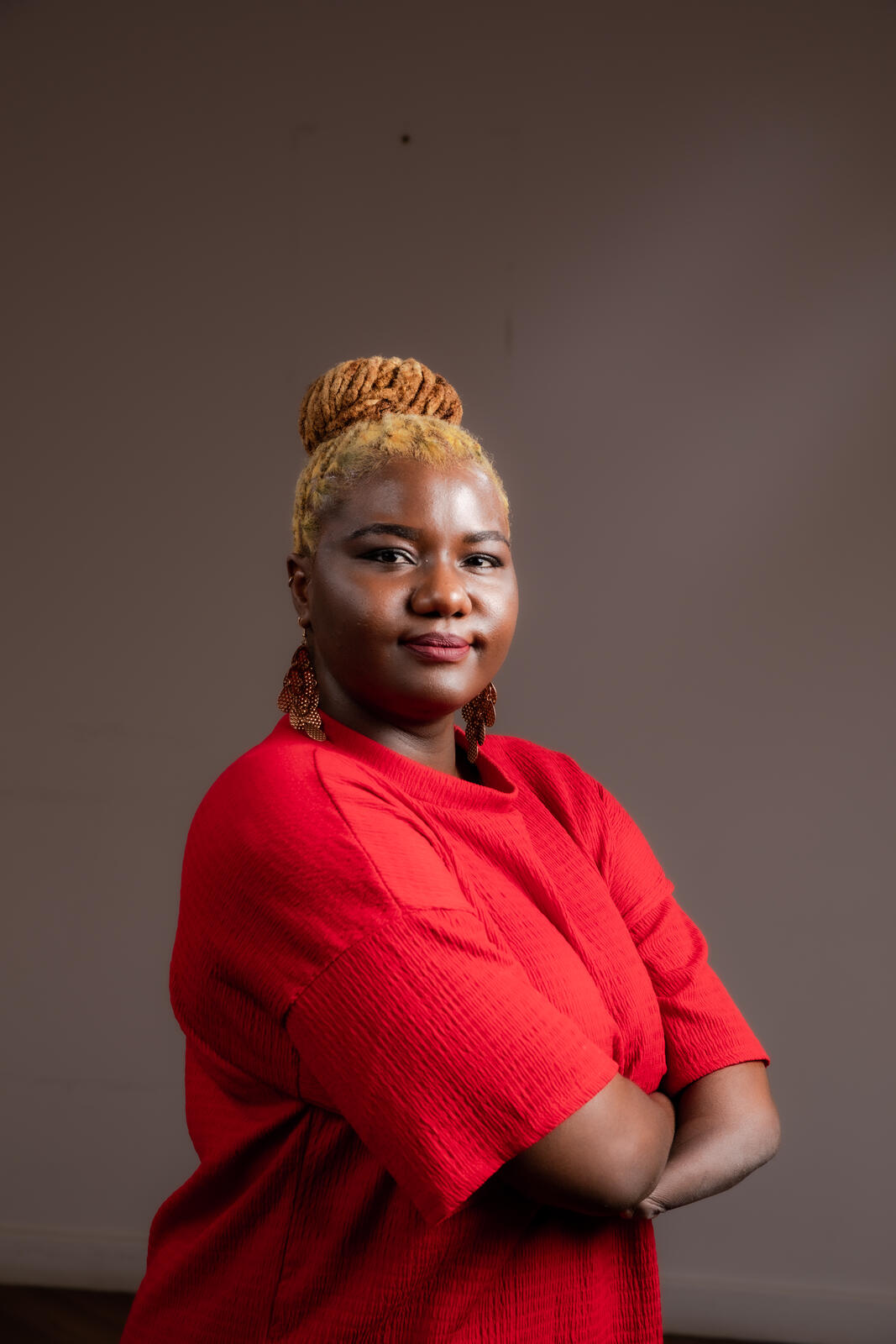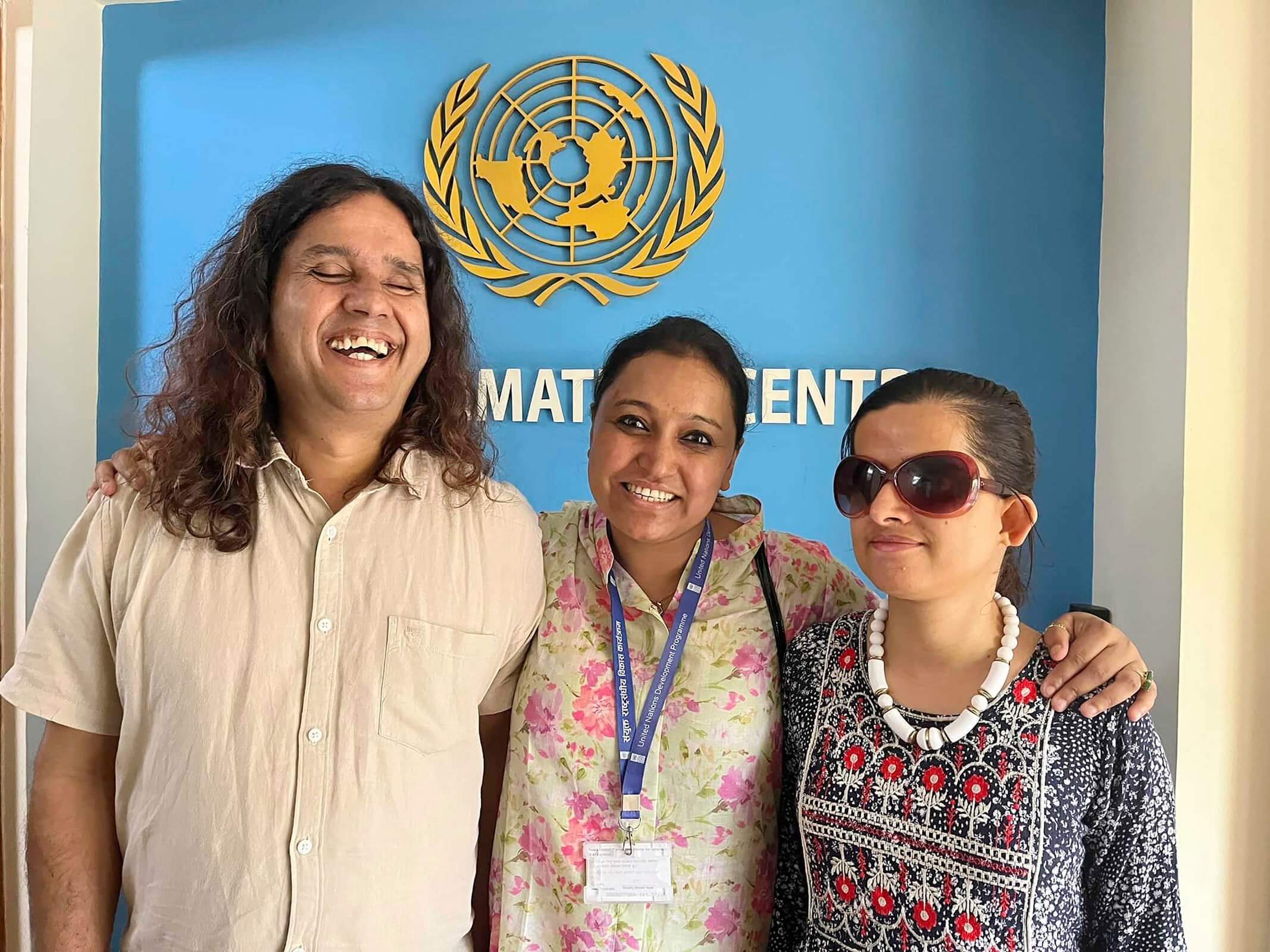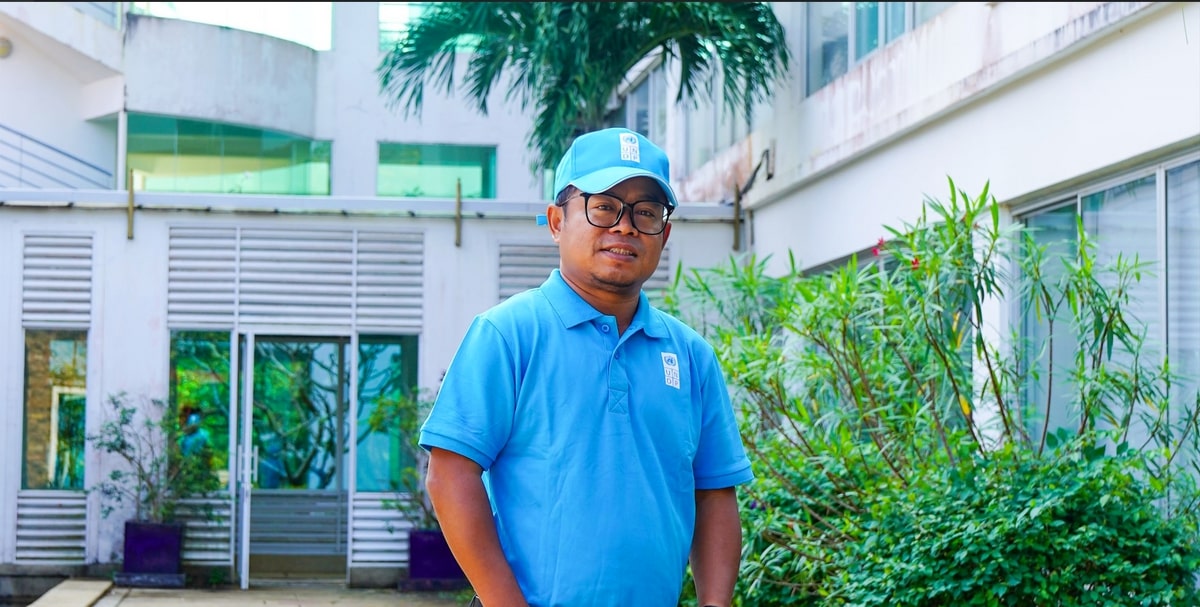
From Vision to Visionary: Unveiling Diversity and Empowering Inclusion
“Welcoming Vibhu in the Human Resources Policy Section was an enriching experience which contributed to raise awareness about the challenges faced by individuals with disabilities at the workplace, but also in their daily life, and the mechanisms needed so that they can contribute to their full potential. Most importantly, the team benefited from Vibhu’s unique perspective, particularly during the many policy discussions and policy development she contributed to. The resilience and resourcefulness she demonstrated during the COVID-19 pandemic were also a source of inspiration for many of us,” says Martha Helena Lopez, Assistant Secretary General, Office of Human Resources.
Vibhu Sharma is from New Delhi, India. After completing her Bachelor’s in English (Hons) from the prestigious St. Stephen’s College, University of Delhi, Vibhu went on to earn a Master’s degree from the University of Edinburgh in the United Kingdom.
Being visually impaired, she overcame multiple barriers ranging from societal misconceptions to inaccessible educational materials. But these obstacles did not deter her.
With her dedication and resourcefulness, Vibhu worked on three distinct assignments with three headquarters of different UN agencies, in addition to consulting with a Regional Office of the fourth; a combination which was not only rare for young people of her age, but would also leave an indelible mark on those she worked with.
Eager and enthusiastic, Vibhu’s motivation to volunteer with the UN stemmed from her desire to work towards a future inclusive for everyone including persons with disabilities.
In her first assignment as an Associate Policy Officer with the Office of Human Resources with the UN Secretariat headquarters in New York, she worked on the intricate Human Resources (HR) policy.
Vibhu played a pivotal role in crafting and refining policies that promoted diversity, equity and inclusion within the organization. Vibhu’s work was not merely bureaucratic; it was transformative. She not only helped to revise the general HR policies like on leave and attendance, or the COVID-19 Administrative Issuances, Information Circulars, FAQs and guidance’s, but also strengthened the organization’s inclusive agenda.
Vibhu spearheaded the development of a UN-wide e-learning course on disability and inclusion, delivered multiple training programmed for capacity building on inclusion and developed communication assets. She further drafted guidance on reasonable accommodation for persons with disabilities, assisted with the establishment of a resource group for employees with disabilities, and developed a mechanism for self-identification to enable data disaggregation on persons with disabilities who apply to and are hired for UN jobs.
Vibhu describes her assignment as “Working in UN Human Resources is to working to ensure the wellbeing of those who work behind the scenes to make an inclusive future a reality.”
Vibhu had to overcome numerous challenges. The COVID-19 pandemic hit soon after she had settled in New York. She dealt with issues ranging from inaccessible newly adopted digital platforms to preconceived notions about her abilities due to her visual impairment.
With her strong problem-solving skills, diligence and enhanced communication abilities, Vibhu embraced each challenge as an opportunity for growth. She quickly adapted to the new digital platforms, finding ways to use them effectively and efficiently with screen-reader software. She embraced a collaborative approach, fostering open dialogue and finding mutually agreeable solutions to meet results and demands of the job.
This allowed for a continuous learning process where Vibhu willingly learnt from her colleagues about the intricacies of the work of her team, and her colleagues learnt from her about following inclusive practices and accommodating colleagues with disabilities.
“Working with Vibhu was a rewarding experience. She is determined, resilient, resourceful, communicates effectively, learns quickly and demonstrates commitment. Her analytical skills, combined with her key and critical eye for detail, are of high value,” says Celine Ancelet, Human Resources Officer and Vibhu’s supervisor.
She has fond memories of delivering a brownbag session on disability inclusion in the workplace. Vibhu shares that her colleagues expressed that the session was an eye-opener for them, as they learnt very simple ways they could practice inclusion.
Vibhu’s second, highly effective assignment was with the UN Children’s Fund (UNICEF) at its headquarters in New York. She served as a Disability-Inclusive Education Officer with the Education Section.
This assignment allowed her to directly contribute to programming to achieve equal, equitable and inclusive education for children with disabilities.
Vibhu contributed to advocacy efforts and programme development and created impactful communication assets that strengthened UNICEF’s messaging on the inclusion of children with disabilities in education programming. These materials came handy at high-level conferences such as the Global Disability Summit and the Transforming Education Summit.
Vibhu also helped with the development and updating of UNICEF’s Accessible Digital Learning Portal as well as the Learning Portal and also developed a comprehensive knowledge management solution that serves as a reference database for existing resources on gender, diversity, and inclusion.
“Vibhu has demonstrated a strong knowledge across different technical areas of disability-inclusive education. She actively carried out research and knowledge management, technical reviews, analysis of Country Office Annual Reports and developed communication assets like key messages for communication and advocacy, and did database management,” says her colleague.
In her third assignment, Vibhu made her way to the heart of the United Nations Volunteers (UNV) programme. She became a Communication Specialist for Disability Inclusion, supporting a communications project recognizing volunteers with disabilities. This initiative bore fruit in the form of a photo book and this accessible web portal, which feature stories of former and serving volunteers with disabilities carefully and diligently crafted by Vibhu.
As Vibhu reflects on her experiences as a UN Volunteer, she shares that the experience has benefited her both personally and professionally. Personally, her pre-existing ability to communicate diplomatically has enhanced. Professionally, she has developed skills to efficiently work in areas outsider her academic training and has gained skills to lead on several projects.
“In three different assignments, I have had two achievements of which I am most proud. First is the e-learning course on disability inclusion that I developed at the UN Secretariat, together with UNDP. I consider this to be my legacy, as employees with both organizations will continue to benefit from the course and learn about inclusion. My second proud project is the Diversity Mosaic photo book and accessible website, which not only raise awareness of the efforts of volunteers with disabilities within the UN, but also gives a sense of community and comradery to the volunteers with disabilities.”
Looking ahead, Vibhu remains steadfast in her commitment to creating a more inclusive world, one where diversity is celebrated, and barriers are dismantled.
Two quotes that resonate with her are “'The only disability in life is a bad attitude” (Scott Hamilton) and “'In diversity, there is beauty and there is strength” (Maya Angelou). Vibhu has and continues to live guided by both of them. She did not let her disability become a “bad attitude” for her, and she embraces disability as a part of human diversity. She draws inspiration from luminaries like Helen Keller, whose unwavering determination in the face of adversity serves as a beacon of hope and resilience.
This article was produced by Amina Said, Communications Specialist / Web Manager, UN Volunteers. Find out more on how to become a UN Volunteer or engage a UN Volunteer.



